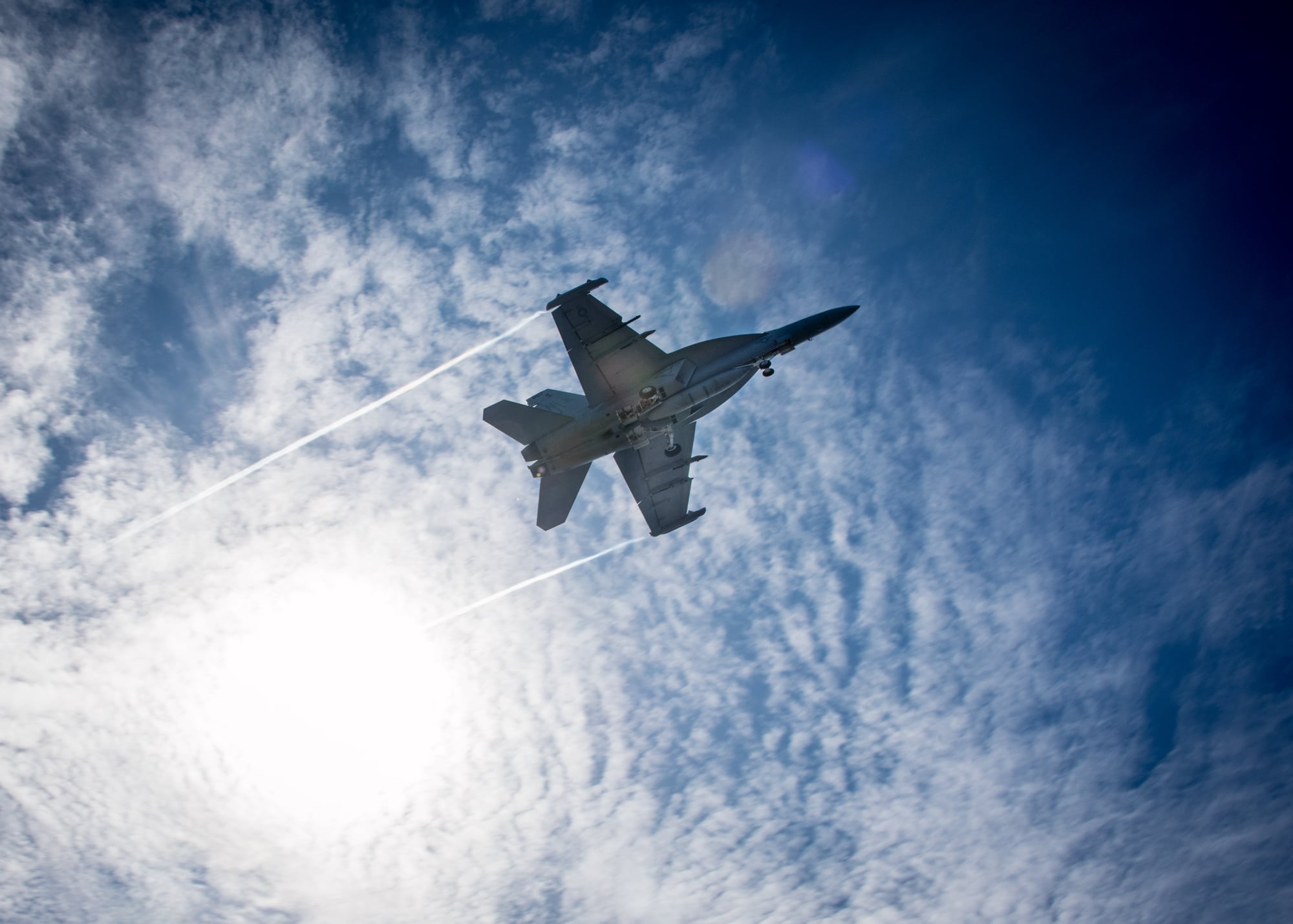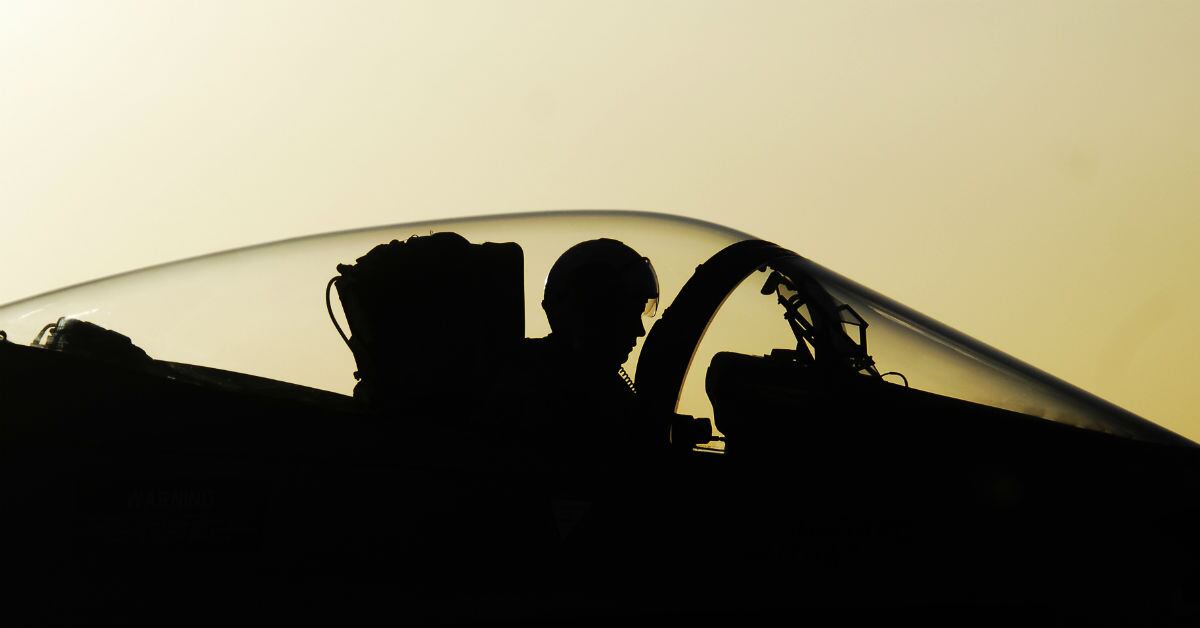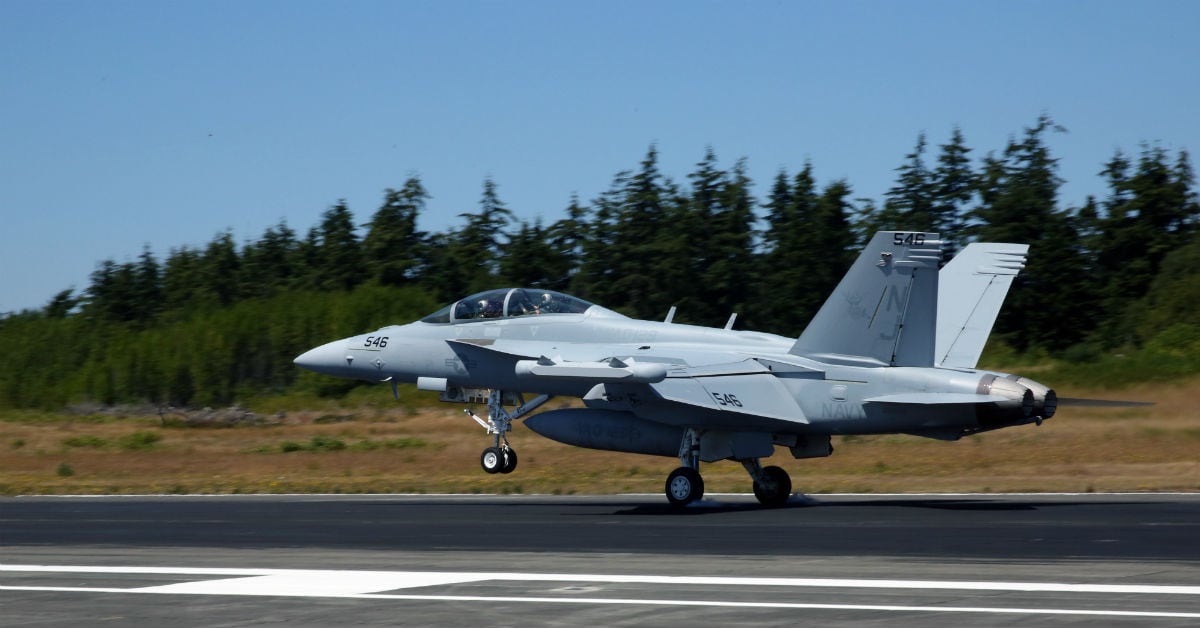Two House Armed Services Committee lawmakers chided the Navy for not sharing details of a harrowing in-air mishap aboard an E/A-18G Growler jet during a hearing last month.
The jet was cruising at 25,000 feet on Jan. 29 from Washington state’s Naval Air Station Whidbey Island when the two-seater’s environmental control system failed, plummeting the cockpit’s temperature to 30 degrees below zero and covering the interior in a layer of ice that left the pilots nearly blind.
Using a GPS watch, the pilot managed to safely land the jet.
But about a week later, at a Tactical Air and Land Forces subcommittee hearing about such cockpit hazards, Rear Adm. Sara Joyner made no mention of the “physiological episode,” according to a March 7 letter from subcommittee members to Chief of Naval Operations Adm. John Richardson.
Joyner heads the Navy’s Physiological Episodes Action Team, or PEAT.
“During this nearly two-hour engagement, the Navy witness failed to mention the (physiological episode) experienced by an EA-18G Growler crew,” the letter from Rep. Michael Turner, an Ohio Republican and Rep. Niki Tsongas, a Massachusetts Democrat, states.
“We believe the Navy should have addressed this incident at the February 6th hearing and informed Members that the Navy had initiated an aircraft mishap investigation,” the letter states. “We are disappointed that the Navy did not inform the subcommittee or its staff of this event prior to the hearing.”
Cmdr. Scot Cregan, a PEAT spokesman, said the Growler incident was not brought up “because it was an active mishap investigation and, as such, commentary would have been speculative at best.”
RELATED

The Navy is working with committee members to figure out how they can be given incident details “while preserving the concept of privilege,” Cregan said.
A CNO response to the letter is being written but has not yet been sent to the lawmakers, he said.
The pilots, Lt. Jason Hirzel and Lt. Sean Noronha, were treated for frostbite, with one returning to flight status and the other expected to make a full recovery, Navy officials said earlier this month.
The aircrew of the elite Air Test and Evaluation Squadron 9 received air medals in recognition of their skills in bringing the jet back to earth safely and intact.
Physiological episodes, or PEs, are an array of dangerous cockpit conditions afflicting several airframes that involve oxygen loss and pressure changes.
The Navy and Air Force have struggled with how to deal with an increase in the incidents, which span several airframes and have proven to be a stubborn problem to resolve.
Turner and Tsongas’ letter notes that they expect to be kept apprised of the Growler mishap investigation.
“As members of the House Armed Services Committee we need to be reassured the Navy continues to treat mitigating PEs as a top priority,” the letter states. “We remain committed to working with you and your staff to determine a root cause of these physiological episodes.”
The PEAT was stood up by the Navy last year to provide a one-stop shop for all PE issues.
RELATED

Joyner, a career aviator, was tapped as the first flag officer to lead the effort.
She will be transferring out after less than a year in the position, a departure Tsongas lamented during the February hearing that was reiterated in the March 7 letter.
“We trust the loss over her invaluable expertise in this area will be addressed by assigning an equally proficient and capable replacement,” the letter states.
Turner and Tsongas expressed frustration at the February hearing about the Navy and Air Force’s inability to solve the PE crisis, and cited a NASA report that found shortfalls in the Navy’s response over the past decade.
The Navy reports it has made progress on the issues afflicting several air frames, but work remains to be done.
Geoff is the managing editor of Military Times, but he still loves writing stories. He covered Iraq and Afghanistan extensively and was a reporter at the Chicago Tribune. He welcomes any and all kinds of tips at geoffz@militarytimes.com.




